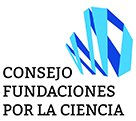In her position as Secretary of State for Universities and Research in Felipe González’s first government, Carmina Virgili found but one obstacle for the fact of being a woman in a traditionally male-dominated environment: on more than one occasion, La Moncloa’s doorkeepers would block her way on the grounds that only high-ranking positions were allowed in. She was even mistaken for the press chief’s secretary. Beyond these more or less annoying anecdotes, however, she did not suffer from major prejudices at her arrival to the ministry.
Virgili is a Professor of Stratigraphy, the branch of geology that attempts to “clarify the history of Earth from rock layers –strata– as if these were pages in a book”. She and Rosana Menéndez, Full Professor of the University of Oviedo, belong to two different generations of female scientists and were therefore chosen by Aula El País and the Esteve Foundation to recount their personal experiences in the framework of the Science Week meetings held in Barcelona.
Carmina Virgili considers herself fortunate. Born in Barcelona in 1927, she was raised in an enlightened medium bourgeoisie environment. Her parents, both liberal professionals, saw it only natural that she would pursue university studies. She took advantage of the last years of the republican Catalonia and, while at high school in the first years of the dictatorship, she received progressive teaching from philologist Pere Bohigas. At the Faculty of Geology, she found that the majority of students were women.
Nevertheless, she was to face the first injustices as soon as she was promoted. In the fifties, the Dean of the Faculty accepted Virgili as a teacher but denied the possibility of her being a full professor. Not until 1963 was she allowed to sign as such, becoming the first professor of the University of Oviedo. Back then, “being a female professor was both bizarre and exotic”, says she with an enviable sense of humor. In 1977 she was also appointed first woman dean in the University of Madrid. As she rose in her profession, she realized that discrimination went far beyond those strange gazes upon her when she showed up, hammer in hand, in the mine.
That mining is hardly a woman-friendly environment was also experienced, a few decades later, by Rosana Menéndez –an expert in geodynamics, the branch of geology that studies the processes that take place in relief evolution. Occasionally meeting other female scholars made her feel much more comfortable, but never discriminated.
Today, she recalls, 25% of full professors in the area of Geology in Spain are women. While this may not be a very encouraging figure in times when parity is regulated by law, it is far better than it was before. “The enterprise and mining worlds are much more complicated for women than the academic world. The former are typically male environments”, acknowledges Menéndez.
These two generations of women reckon that the problem does not lie in explicit discrimination of women but rather in reconciling work and family life. “Pursuing a scientific career and being a mother is incompatible”, recognizes Virgili to an audience that admits that raising a child makes it much more difficult to match a man’s curriculum.
While Virgili and Menéndez both champion the controversial sex-parity laws as a way to break barriers, they warn of the danger of an increasingly frequent situation: many women eventually turn down high-rank positions in order not to sacrifice family life.









